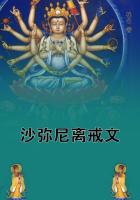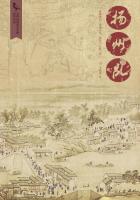Socially or intellectually, the college was for him negative and in some ways mischievous. The most tolerant man of the world could not see good in the lower habits of the students, but the vices were less harmful than the virtues. The habit of drinking -- though the mere recollection of it made him doubt his own veracity, so fantastic it seemed in later life -- may have done no great or permanent harm; but the habit of looking at life as a social relation -- an affair of society -- did no good. It cultivated a weakness which needed no cultivation. If it had helped to make men of the world, or give the manners and instincts of any profession -- such as temper, patience, courtesy, or a faculty of profiting by the social defects of opponents -- it would have been education better worth having than mathematics or languages; but so far as it helped to make anything, it helped only to make the college standard permanent through life. The Bostonian educated at Harvard College remained a collegian, if he stuck only to what the college gave him. If parents went on generation after generation, sending their children to Harvard College for the sake of its social advantages, they perpetuated an inferior social type, quite as ill-fitted as the Oxford type for success in the next generation.
Luckily the old social standard of the college, as President Walker or James Russell Lowell still showed it, was admirable, and if it had little practical value or personal influence on the mass of students, at least it preserved the tradition for those who liked it. The Harvard graduate was neither American nor European, nor even wholly Yankee; his admirers were few, and his many; perhaps his worst weakness was his self-criticism and self-consciousness; but his ambitions, social or intellectual, were necessarily cheap even though they might be negative. Afraid of such serious risks, and still more afraid of personal ridicule, he seldom made a great failure of life, and nearly always led a life more or less worth living.
So Henry Adams, well aware that he could not succeed as a scholar, and finding his social position beyond improvement or need of effort, betook himself to the single ambition which otherwise would scarcely have seemed a true outcome of the college, though it was the last remnant of the old Unitarian supremacy. He took to the pen. He wrote.
The College Magazine printed his work, and the College Societies listened to his addresses. Lavish of praise the readers were not; the audiences, too, listened in silence; but this was all the encouragement any Harvard collegian had a reasonable hope to receive; grave silence was a form of patience that meant possible future acceptance; and Henry Adams went on writing. No one cared enough to criticise, except himself who soon began to suffer from reaching his own limits. He found that he could not be this -- or that -- or the other; always precisely the things he wanted to be.
He had not wit or scope or force. Judges always ranked him beneath a rival, if he had any; and he believed the judges were right. His work seemed to him thin, commonplace, feeble. At times he felt his own weakness so fatally that he could not go on; when he had nothing to say, he could not say it, and he found that he had very little to say at best. Much that he then wrote must be still in existence in print or manuscript, though he never cared to see it again, for he felt no doubt that it was in reality just what he thought it. At best it showed only a feeling for form; an instinct of exclusion. Nothing shocked--not even its weakness.
Inevitably an effort leads to an ambition -- creates it -- and at that time the ambition of the literary student, which almost took place of the regular prizes of scholarship, was that of being chosen as the representative of his class -- Class Orator -- at the close of their course. This was political as well as literary success, and precisely the sort of eighteenth-century combination that fascinated an eighteenth century boy. The idea lurked in his mind, at first as a dream, in no way serious or even possible, for he stood outside the number of what were known as popular men. Year by year, his position seemed to improve, or perhaps his rivals disappeared, until at last, to his own great astonishment, he found himself a candidate.















